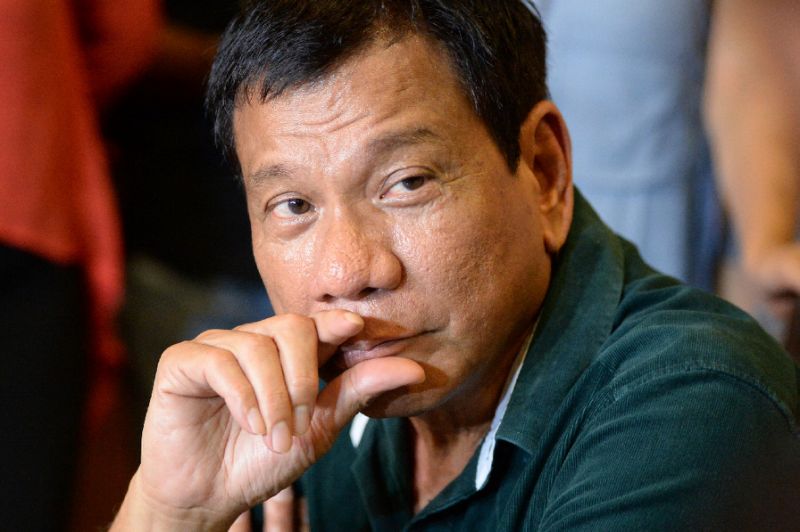US President Donald Trump invited his Philippine counterpart Rodrigo Duterte to visit Washington.
The invitation was extended during a “warm” telephone call between the two leaders, who discussed North Korea’s “threat” to the two countries, said a White House statement.
Duterte had come under fire for the fierce crackdown he has been waging against drugs in his country that has left thousands of people dead. Rights organizations have compared the campaign to crime against humanity.
Trump expressed to Duterte Washington’s commitment to their treaty alliance and his interest in developing “a warm, working relationship,” a Filipino official said Sunday.
Presidential spokesman Ernie Abella said Trump mentioned he was looking forward to visiting the Philippines in November to attend an East Asia summit that Duterte will host with several world leaders and that Trump invited Duterte to visit the White House.
“The discussion that transpired between the presidents was warm, with President Trump expressing his understanding and appreciation of the challenges facing the Philippine president, especially on the matter of dangerous drugs,” Abella said in a statement.
There was no immediate reaction from White House officials on Abella’s description of the late-Saturday telephone conversation between the leaders.
Abella’s remarks reflect the friendlier attitude Duterte has taken with Trump versus the antagonistic stance he had toward President Barack Obama, who he once asked to “go to hell” for criticizing the Philippine leader’s bloody anti-drug crackdown.
During Obama’s final months in office, the Philippine president moved to build closer economic ties with China and Russia while repeatedly threatening to end his nation’s longstanding military alliance with the US.
Duterte’s apparent dislike for Obama began when the US State Department expressed concern over his drug war and asked Philippine government officials to take steps to stop extrajudicial killings.
At one point Duterte suggested he may even move to abrogate a 2014 defense agreement that allows US military access to five Philippine military camps.
He has walked back most of those threats but has proceeded with his efforts to align closer with China.
On Sunday, three Chinese navy ships, including a guided-missile destroyer and a guided-missile frigate, were welcomed in Davao city, Duterte’s southern hometown, by officials, including presidential daughter and city Mayor Sarah Duterte, military officials said.
Asked if the rare Chinese naval visits were a sign that Duterte was backing away from Washington, Department of National Defense spokesman Arsenio Andolong said: “We are not veering away from the US but rather we are expanding our relations with our fellow nations in the global community.”
Abella said without elaborating that concern over North Korea also came up in Trump’s talk with Duterte.
Duterte suggested in a news conference Saturday that the Trump administration should back away from an intensifying standoff with North Korea, not in surrender, but to avoid risking a nuclear holocaust that could smother Asia.
“It would be good for America to just restrain a little bit and if I were President Trump, I’ll just back out, not really in surrender and retreat, but just to let the guy realize that, ‘Ah, please do not do it.'” Duterte said.
Washington, he said, should not play into provocations of North Korean leader Kim Jong Un.
“It behooves upon America, who wields the biggest stick, just to really be prudent and patient. We know that we are playing with somebody who relishes letting go of his missiles and everything,” Duterte said.
